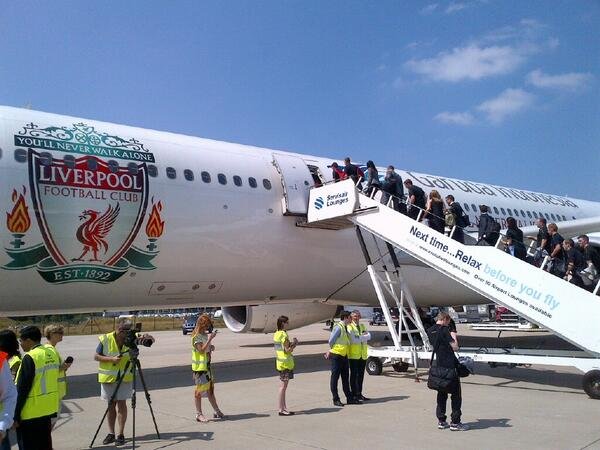The problem Liverpool has with the South American contingent
Before the 243rd Merseyside derby, Liverpool’s story was heavily rumored to be problematic, mostly due to their South American players’ availability. The prompt and safe return of players such as Darwin Nunez, Alexis Mac Allister, and Luis Diaz from international service was a logistical problem that Jurgen Klopp and his squad skillfully managed, as Paul Gorst of The Liverpool Echo aptly illustrates.
IMPARTIMENTATION FROM THE PAST: MANAGEMENT TACTICAL CHANGES
“Clearly, lessons have been learned from the September break,” Gorst notes, highlighting Liverpool’s proactive strategy this time around. In the past, Diaz and Nunez started the Wolves game on the bench due to the physical toll taken on players like Mac Allister, who suffered greatly after returning from international service. The fact that the South American foursome was given an earlier return by the club, giving them more preparation time before the crucial game against their local rivals, was clear evidence of Klopp’s priority placement for the players’ recuperation.
The logistics behind the scene are expensive yet necessary.
In highlighting Klopp’s own admission of the significant cost the team incurred to reduce travel hassles, Gorst highlights the scope of Liverpool’s commitment: “A private jet was chartered to ensure there were as little travel issues as possible for all four players.” Although not unusual in the Premier League, this action highlights the extent clubs are prepared to go to in order to preserve player welfare and competitive readiness—a fact Liverpool handled more skillfully in October than in previous years.
DIAZ’S UNNOTICABLE IMPACT ON EVERTON
Although Nunez’s season is still going well, Gorst stated that Diaz’s “quiet contributions of which ultimately made the difference” in the dynamics of the match versus Everton. Diaz played a vital role that was sometimes underappreciated by players like Mohamed Salah. His tenacity and on-field knowledge were essential. Gorst recounts the incident in which Ashley Young upended Diaz close to the halfway line in the first half, highlighting a few minor but crucial moments that ultimately led to Young’s second yellow card.
MANAGING DIFFICULTIES WITH STRATEGIC FORESIGHT
Liverpool’s handling of the matter demonstrates a higher level of strategic vision, striking a balance between the physical demands placed on its players and the Premier League’s competitive requirements. Liverpool appears more and more capable of navigating these schedule complexities, especially in light of the impending test against Manchester City following the international break.
VERDICT: A CONTINUING BALANCE ACT
After reading Paul Gorst’s gripping story, it’s obvious that Liverpool must perform a delicate dance to strike a balance between its domestic competition goals, international obligations, and player welfare. The team’s changing approaches, particularly in how they handle their South American resources, show that they are a team that is willing to adapt and learn—two qualities that are necessary to survive the demanding Premier League season.

